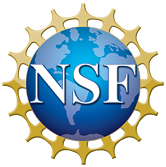Project TRACS Overview
Note: Thank you for your interest in ADVANCE Project TRACS, our NSF funded Institutional Transformational Grant which ended August 31, 2017. The pages that follow are historical documents for informational purposes only.
Project TRACS: Empirically Investigating Transformation through Relatedness, Autonomy, and Competence Support
At the time we received the grant in 2012, Montana State University (MSU) was one of only four institutions classified as ‘Very High Research Activity’ by the Carnegie Foundation to have women in both of the top leadership positions. Since arriving, President Waded Cruzado had created a new President’ s Commission on the Status of University Women and brought Dr. Virginia Valian to campus to conduct training on “gender in the academy”. At that time, Provost Martha Potvin had created a new Director of Faculty Development and reinstated funding for the Women’ s Faculty Caucus. Put simply, MSU was poised for change, and change was needed. Women faculty were leaving MSU at twice the rate of men; 13 of our STEM/SBS departments had fewer than three women and two departments had zero. At MSU Bozeman, with over 300 faculty in STEM/SBS, fewer than 19% were women.
Our primary goal was to transform Montana State University and broaden the participation of women faculty in STEM and underrepresented areas of Social and Behavioral Science (SBS) at MSU Bozeman. As former First Lady Obama articulated, invoking the metaphor of a “runner’ s track,” women faculty may find themselves on an “outside” track with hurdles to overcome and a longer distance to run. Our proposal initiatives aimed to transform MSU by removing those hurdles, advancing women to an equal starting point, and thus reducing the “accumulation of disadvantage” (Valian, 1998). Our project operationalized a highly innovative approach to the selection, implementation, and importantly, the empirical understanding of the transformation process. We applied Self-Determination Theory (SDT, Deci & Ryan, 2000), which specifies three “needs” that, when supported by a given environment, foster sustainable performance, persistence, and organizational loyalty. These needs are:
- Relatedness - the experience of having satisfying and supportive social connections.
- Autonomy - the experience of acting with a sense of volition and fully embracing one’ s actions.
- Competence - the belief that one has the ability to influence important outcomes.
SDT is a well-established theory and offers validated measurements used to assess not only the outcomes of the transformative initiatives (did the program work?) but the process of transformation (why did it work?). Our second goal was to incorporate the tenets of SDT in testing the process of institutional transformation, thus generating direct empirical evidence for whether and how our initiatives bring about cultural transformation. For more information, visit the Social Science Research webpage.
Our objectives:
ADVANCE has institutionalized systematic research support for women faculty in STEM/SBS fields through grant pre-proposal assistance, a mentoring network of successful grantees, and facilitating engagement of women in interdisciplinary research that are now incorporated into the Research Resources of the MSU Center for Faculty Excellence (CFE).
ADVANCE generated new programs, such as a dual career assistance program, and built on existing programs, such as the donated sick leave pool, providing more flexible solutions for work-life integration in general and during major life transitions. Many of these programs are sustained through the Family Advocate in the Provost's Office or in HR's Family Resources.
ADVANCE promoted respectful communication, sensitivity to the dynamics of relationships within a culture, and respect for the values and beliefs of cultures. The project team employed the active and vigilant practice of maintaining cultural humility, active attention and ongoing mindfulness, to implement many programs, including diversity depth hires, an faculty search toolkit and equity advocate program, and engaged the MSU community in unconscious bias education (see events throughout the life of the grant).
Our Research Objectives:
-
Research Objective 1:
Test the extent to which institutional, departmental, and individual markers predict gender cultural transformation among MSU faculty and administrators
-
Research Objective 2:
Test the dynamic and complex ways in which fostering competence, autonomy, and relatedness needs can bring about cultural transformation at MSU. Here we tested the fit of an “Additive model” whereby initiatives could have an additive positive effect on the three needs for both faculty and administrators resulting in cultural transformation compared to a “Specialized model” whereby each initiative could have unique and independent positive effects on a particular need for particular people, Results showed support for the additive model
-
Research Objective 3:
Test the effectiveness of each of the “Enhancing Cultural Attunement” initiative components
For for more information in the Research Objective outcomes, visit the Social Science webpage.


 The material on this site is based upon work supported by the National Science Foundation (NSF) under Grant No. 1208831. Any opinions, findings, and conclusions or recommendations expressed in this material are those of the author(s) and do not necessarily reflect the views of the National Science Foundation.
The material on this site is based upon work supported by the National Science Foundation (NSF) under Grant No. 1208831. Any opinions, findings, and conclusions or recommendations expressed in this material are those of the author(s) and do not necessarily reflect the views of the National Science Foundation.